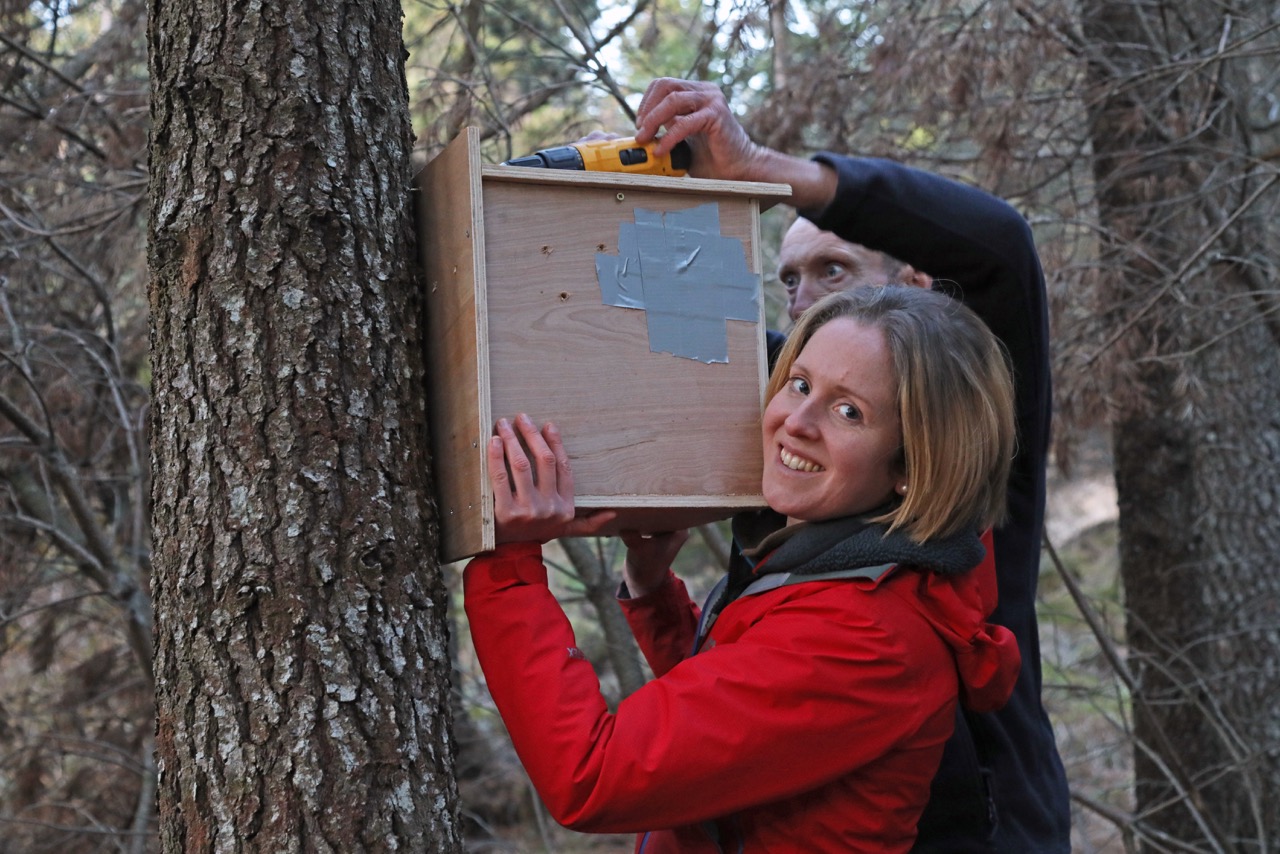Red squirrel rewilding
Red squirrels are an iconic Scottish species. But historic habitat loss and human persecution has brought this woodland-loving mammal to the brink of extinction. Today, the recovery of red squirrels remains under threat due to competition with non-native grey squirrels and the fatal ‘squirrel pox’ they carry.
The Scottish Highlands is the largest remaining stronghold for red squirrels in the UK, home to around 75% of the population. However, this has traditionally been confined to the central and eastern Highlands. Reds remain absent from much of their former range in the northwest Highlands – until now.
Trees for Life has been reintroducing red squirrels to the northwest Highlands since 2016. So far, we have translocated 259 squirrels to create 13 new populations in Shieldaig, Coulin, Plockton, Inverewe, Reraig, Attadale, Letterewe, Lochaline, Spinningdale, Golspie, Arisaig, Drimnin and Ratagan. The new populations are thriving and we expect them to eventually merge together. This will strengthen numbers and ensure this pioneering project remains a rewilding success story.
Help support Scotland’s red squirrels by reporting your sightings here.
Aims
Create 14 new populations of red squirrel in the northwest Highlands
Ensure all potential reintroduction sites across the northwest have been investigated
Conduct a Highland-wide red squirrel survey to create a distribution map. Use this information to identify areas that could be linked and future potential reintroduction sites
Build lasting relationships with local communities, landowners and project partners
Highland Red Squirrel Survey Results
The data from the Highland Red Squirrel Survey provides key insight into the distribution of red squirrels and the success of the translocations in increasing the species’ range. Surveys show reintroductions have been highly successful, already increasing the Highland red squirrel range by more than 26%. The findings have also enabled us to identify fragmented habitats that could be linked and possible future reintroduction sites.

Working with
Our Red Squirrel Reintroduction project is being delivered in partnership with private landowners and communities across the northwest Highlands, Forestry and Land Scotland, Woodland Trust Scotland, National Trust for Scotland, Saving Scotland’s Red Squirrels and Scottish Wildlife Trust.
It has been made possible thanks to supporters of our red squirrel appeal and funding from the People’s Trust for Endangered Species, European Outdoor Conservation Association (ECOA) and the Orp Foundation.
